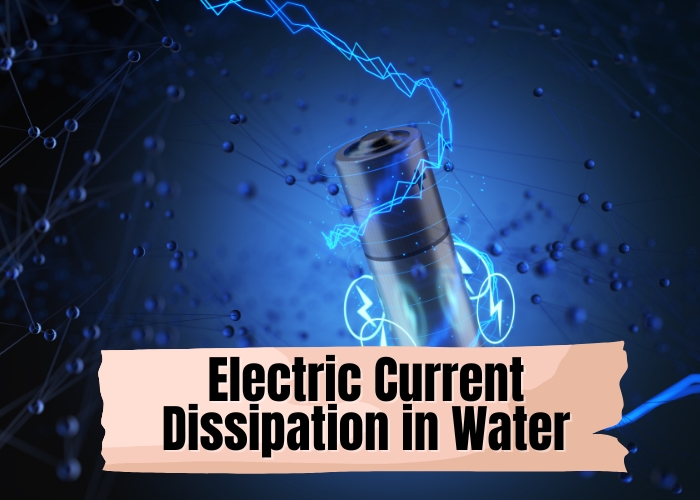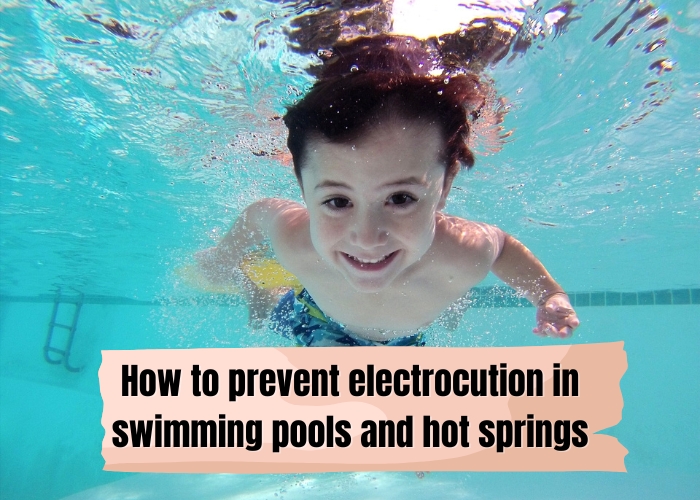Before discussing electricity’s capacity to flow through water, the basics must be understood. Surprisingly, pure water is a poor electrical conductor. When salts and other impurities exist, this substantially alters since the water becomes a consequential conductor. Therefore, the nature of the electric current and the amount of water present determine how far electricity can travel through water. Let’s talk about how far electricity can travel in water.
Water can carry electricity, but the efficiency and distance that electricity can travel through it depends on several variables, chief among them being the water’s conductivity.
What does a water electrocution entail?
A person, such as a swimmer, can be electrocuted in water, commonly referred to as an electric shock drowning, when defective wiring in a pool light, on a boat dock, or a boat launch releases an electrical current into the water, electrifying the water.
Unfortunately, as the charge travels through their body, the person turns into a conductor of the electricity. The individual’s muscles become paralyzed. As a result, it is impossible for them to swim, perhaps leading to drowning.
What are the reasons behind water electrocution?
Any one of the following situations would result in an electrocution in water:
- Electricity can be released into the water by defective electrical wiring on boats, docks, or boat launches, resulting in energized water.
- Inadequate electrical wiring for electric pool appliances, including outlets, power wires, lighting, pumps, filters, vacuums, and outlets
- Aged electrical wiring that has been years without an inspection
- Absence of ground-fault circuit interrupters (GFCI) protection for outlets, fixtures, circuits, lighting, switches, and other electrical outlets
- Electrical devices (such as televisions and radios) and extension cables that fall or are dragged into the water
What is the maximum distance that electricity can travel through water before stopping?
It may travel freely in conductive settings, like water and electricity, which might lead to hazardous circumstances. The behavior of electricity in water and the point at which it loses its influence is of scientific interest. Depending on the composition of the water, there are wide variations in the conduction of electricity. Pure water: Because it lacks ions, it is a poor conductor of electric current; water with dissolved minerals and salts conducts electricity more effectively. This post will discuss the elements influencing water’s electrical conductivity.
Electric Current Dissipation in Water

Three main elements mainly account for the dissipation of electric current in water:
Resistance: Water has a far higher resistance than most conductive materials, such as metals. Electric current is significantly lost as a result of this;
Law of Inverse Squares: This law states that an electric current’s intensity drops with the cube of its distance from its source;
Water Molecule Ionisation: Water is a polar molecule that has the potential to ionize, which can obstruct the steady passage of electrical current.
How far through water can electricity travel?
How far can electricity travel in water- The number of contaminants in the water, the voltage of the electricity, and the resistance encountered are some of the parameters that affect the diffusion of electricity in water. For instance, a lightning strike or other high-voltage electrical source can travel through water for around 6 meters. Large bodies of water cannot get extensively electrified or allow the electricity to propagate due to the restricted capacity of dissolved compounds. In this sense, the kind and concentration of dissolved materials affect water’s electrical conductivity. As a result, water’s ions and cleanliness significantly impact its capacity to conduct electricity. The fact that most of the water sources we come into contact with daily are decent electrical conductors suggests that there could be risks involved when electricity and water come into contact. Water and electricity should thus only come into contact with taking extreme safety precautions.
What signals indicate a water electrocution?
Muscle cramps, tingling sensations, being completely immobile, and the sense that something is holding you or someone else in place all indicate that you or they are experiencing or are in danger of electrocution in water. Underwater lights may be flickering, malfunctioning, or operating sporadically.
Additional indicators consist of:
- Swimmers may behave in an uneasy or frightened manner.
- One or more swimmers in the water might be inert or unmoving.
- Swimmers might aggressively remove themselves from a particular region or a swimmer who is not moving.
defending both yourself and other people
In the case that someone is electrocuted by water, remember these crucial safety precautions:
- While in the water, if you encounter any tingling sensations, swim back toward the direction you came from and notify the owner of the boat, pier, marina, or boat launch right away.
- Avoid utilizing a metal ladder to exit the water, as it may heighten your risk of receiving a shock.
- Swim away from the boat, dock, ladder, light, or anything else that can be the source of the electricity if you think someone else is being shocked.
- DO NOT JUMP IN if someone is starting to be shocked.
- If someone is being shocked while submerged in water, reach out and grab onto their body using a carbon fiber rod (like a fiberglass Shepherd’s crook or rescue hook) and pull them (face up) to safety. Place the victim on their back, make sure they are breathing, and perform CPR if necessary. Next, give 9-1-1 a call.
- Cut off all electrical power in the area immediately if you believe someone in the water is experiencing an electrical shock.
How to stay safe from electricity around docks, around boats, and in lakes
Adhere to these crucial safety guidelines to shield yourself against electrocution in water:
- Use carbon fiber ladders instead of using metal ladders on boats, docks, and boat launches.
- Make sure you and your neighbors know where your power cutoffs are.
- Obtain an annual inspection of your docking cables from a qualified electrician.
- When there is electricity in the water, use a device like the “Dock Lifeguard,” which can identify any electrical risks and sound an alarm.
- Never swim when a boat is operating close to a marina, boat dock, or boat launch.
How to prevent electrocution in swimming pools and hot springs

The following safety advice can help avoid electrocution from water in hot tubs and pools:
- Watch for underwater lights that flicker, malfunction, or operate only occasionally.
- Understand the locations of all the circuit breakers and electrical switches surrounding your pool and how to turn them off in an emergency.
- Avoid swimming during or right after a thunderstorm.
- In and around your pool, use appliances that run on batteries rather than cords.
- A Water Watcher should be assigned to watch kids in the water.
- Ground-fault circuit interrupters, or GFCIs, safeguard electrical and lighting circuits.
Are you in need of a knowledgeable attorney for electrocution?
Give Jeff Feldman a call if you or someone you care about has suffered a fatal electrocution or severe physical damage due to electricity. He is arguably the most experienced attorney in the country for such cases. Jeff has taken legal action against utility providers and in incidents involving low-hanging power lines nationwide.
In summary
How far electricity can electricity can travel in water- Several intricate variables, including temperature, voltage, current type, and water purity, affect how electricity moves through the water. Even while electricity can go a long way in water, especially in the presence of contaminants like salts, the inverse square law’s fast current dissipation severely restricts this potential. Ultimately, the focus should always be on ensuring safety while working with electricity near water, even though understanding and manipulating these aspects is an intriguing scientific and engineering challenge.

